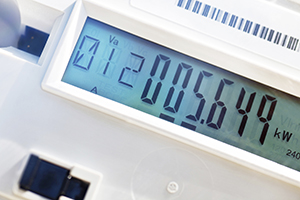The next great money saving idea
If you are a non-domestic water user you will be able to tender your supply as
The idea of a trade association for Third Party Intermediaries (TPI) was first mentioned in the minutes of an energy watch seminar held to discuss energy purchasing for the Public Sector and Small and Medium Enterprises.
It became clear that TPIs were viewed in a less than complimentary light and many horror stories were circulating in the industry and press regarding clients being dealt with in a cavalier manner. There were a group of TPIs who were sufficiently worried about the impact that this was having on their reputation and as a result of wishing to build confidence in the sector, the Utilities Intermediaries Association (UIA) was formed.
WHAT IS THE UIA CODE OF PRACTICE?
The UIA Code is an agreement between the UIA and its members (and suppliers who subscribe to the Code) which sets out the minimum service standards that clients can expect from energy brokers and consultants.
It also outlines how complaints and disputes regarding potential breaches of the Code can be resolved.
Ofgem made the following statement:
“Ofgem welcomes the UIA initiative as the first step to the self-regulation of Third Party Intermediaries in the energy market. We hope that the Code of Practice increases consumer confidence giving customers the assurance that their independent representative is acting with their best interests in mind........."
WHAT'S DIFFERENT ABOUT THE UIA CODE?
The Code has been written and designed specifically to make it truly applicable to energy brokers and their clients. It is a vibrant and easy-to-navigate document clearly spelling out the benefits of using a Member *1 broker/consultant, the service standards clients can expect from a Member *1, and importantly, the processes if required to assist clients in the unlikely event that they have a complaint against a member broker/consultant that will enable them to obtain redress.
An online version of the UIA Code of Practice can be found by clicking HERE
WHY DOES IT MATTER?
The Code aims to:
- build professional competence in the broking profession; and
- Increase consumer confidence in energy brokers/consultants - and the role they play in the insurance process.
The service standards outlined in the Code are also aimed to safeguard self-regulation of the broking industry.
HOW CAN I USE THE UIA CODE TO BENEFIT MY BUSINESS?
It can give you confidence in your chosen broker/consultant.
The Code reinforces a broker's commitment to professionalism, competence and integrity, and can act as a positive point of differentiation between brokers who subscribe to the Code and aim to offer a quality and authoritative service and those who don't.
Organisations listed as Full Members in the Code have fulfilled UIA acceptance criteria which demonstrates they have a firm business footing and are going to be here today and tomorrow.
On the rare occasion things go wrong with your relationship you can have confidence that the UIA will investigate your complaint thoroughly and if needed take Disciplinary action.
THE UTILITY ASSIST VIEW ON CODES OF PRACTICE (COPs)?
They are essential, they need to have clout and customers must be able to have trust in them.
A number of dubious brokers have and are giving the sector a bad name. Right from day one of trading, Utility Assist has always trade ethically and as a result we happily gave our un-qualified support to the UIA efforts to help clean up the sector and continue to do so.
Other codes? Utility Assist have also agreed to abide to the Eon sponsored Code of Practice as it is a condition of trading with them. The Code has laudable aims and we understand it was Eon’s aim to get other suppliers to get-on-board to promote it. Unfortunately, to date only Eon has signed to the code from the supplier’s side which leaves the UIA Code as the Industry leader
Recently the Regulator Ofgem has/is proposing a new code of practice for brokers and other TPIs which looks to be very similar to the UIA one.
Maxine Frerk, Partner for Retail Markets at Ofgem said recently: “We are determined to clamp down on poor practices by some TPIs and provide more transparency in this market. We have already obtained from Government, powers to take enforcement action against misleading TPI behaviour”. In practice we have no issues with the Ofgem proposal but it does feel a bit like someone else having a go at re-inventing the wheel given that the UIA Code fulfils what is needed.
The bad boys in our sector are very well known and we just wish the powers that be would, as they say they already have the powers to do so, use them to stop them trading.
What further concerns us is the new Code will involve more bureaucracy, cost to the TPI’s and importantly runs the risk of further reducing competition in a sector with is crying out for more competition, not less.
*1 Member refers to UIA Full Members only. Utility Assist is a Full Member.




